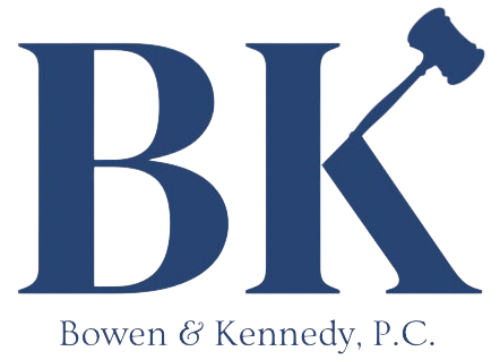Posted by Dawn Kennedy, Esq. | October 17, 2023
Basic Financial Management and Your Business Structure
When you start a business, you have several different structures to choose from. For the purposes of this article, I am going to focus on the two most common small business structures, the Sole Proprietor and the Limited Liability Company.
The Basics: How These Structures are Different
For many people who are just starting out or are self-employed, they choose to remain a sole proprietor and keep the revenue and earnings in their own name and under a social security number or a “personal” Employer Identification Number (EIN) assigned by the IRS.
A sole proprietor is personally responsible and liable for everything related to their business activities and can be sued personally for disputes. A sole proprietor may have employees, but it does not have partners. A sole proprietor can open bank accounts and file taxes using their own social security number, particularly if they do not have employees.
Another structure available, and one that has become more popular over the recent years, is the Limited Liability Company (LLC). The LLC is a completely separate entity from the individual business owner and must be formed correctly with the Secretary of State (or the office governing corporations) according to that state's regulations.
The LLC has at least one “member” but can have more than one. These members have ownership percentage, but stock is not issued, and a board of directors is not appointed. The LLC will have its own EIN assigned by the IRS which will be used to open bank accounts and file taxes, even if the LLC doesn't have any employees outside the members.
Financial Management as a Sole Proprietor
Firstly, this is not tax advice. I'm not an accountant. This is plain vanilla business advice based on years of experience and knowledge in this area. I'm going to give you some tips on managing your finances that will help you avoid future issues if you operate as a sole proprietor.
- Separate Your Finances.
The first thing I run into when advising a sole proprietor is the attitude that, “it's so much work to separate my finances, and it's all my money anyway.” I get it. If you are a sole proprietor the argument can be made that yes, it's all yours.
But you are earning it in your business and keeping business and personal finances separate is important. Now, I know some business owners that still use their personal accounts for business transactions. They accept credit card payments to their personal accounts. That creates kind of a mess for business expenses. There are fees for accepting cards, and these are co-mingled with personal money. And oftentimes, business expenses are missed when they are mixed in with the personal.
Separating your finances is one of the easiest things you can do that protects the integrity of your business record keeping. All of your payments earned in your business go into the business account.
2. Create a payday schedule. And write yourself a check or transfer on specific days
Taking the extra step to pay yourself protects your business and personal cashflow. Here's what I often see happen. The electric bill is due, and “just this once” you are going to use the business debit for your personal expense. Or you just write a business check to the orthodontist because it is just “easier” than taking a check and depositing it in your personal account. In both of these very common occurrences you are potentially messing with your cash flow.
If you dip into your account throughout the month for personal expenses, you are increasing the chance for a cash flow issue. There are always things that can happen to your income. You can have a chargeback. Or you can have a client pay late. Or you can have a down sales month.
Many times, unexpected challenges affect our business financially for a time. If you set two days a month that you would take time to write that paycheck (for what you really need to support your personal expenses) you allow the cash in your business to build up throughout the month. For example, instead of eight draws on your cash for personal bills, you would have two.
3. Set aside your taxes when you pay yourself
I know, I know, it doesn't really feel like you are taking a lot out. However, the tax liabilities on small business owners can be huge where the taxes aren't withheld when money is taken from the accounts.
More than once when the books are actually reviewed did the entrepreneur have to do a double-take to see what was actually taken. Owner's draws, those little withdrawals from the account for personal use, add up and they are taxable as self-employment income.
In the U.S. you have to pay Social Security and Medicare taxes on your personal income. It is very easy to take a little bit each week, and not pay taxes on it. Because it doesn't feel like very much. But do yourself a favor. Set up the online portal for electronic federal tax payments and make a deposit in there whenever you take a paycheck. Or at least quarterly as required. Get an accountant to help you plan your deposit amounts.
Financial Management as an LLC
The first thing here is that ALL revenues earned in the business belong to the LLC. You do not have to separate the finances, because, well, you should NEVER have income personally. Full stop.
- ALL revenue sources point to the LLC bank account, expenses from the LLC account
Make sure the moment you set up your business bank account under the LLC (the bank will want your formation documents and EIN) you immediate point all sources of revenue such as Stripe, PayPal, checks, cash, and anything else to that business account. Remember, you created a separate entity, and all business transactions should be through this account.
This includes paying your business expenses from this account. This can get a little dicey in the beginning if you are still supporting a new business with money earned outside the business. For example, you new company doesn't yet generate enough revenue to cover the monthly business expenses. Your best bet is to write a check or make a transfer to the LLC account and note it personally that it was a capital contribution.
Then proceed to pay the business bills from the LLC account.
2. Make yourself a W-2 employee as soon as possible.
This means, hire yourself through the business, at a reasonable salary, and get regular paydays with taxes withheld. As a sole proprietor the self-employment taxes fall totally and completely on the business owner. As an employee of the LLC, your paycheck taxes are split. You pay the employee portion of the payroll and other taxes and the LLC (the separate entity employing you) pays the employer portion.
There are great online payroll services available that will do the calculations, make the direct deposits, and even file the employer payroll tax returns and deposit the employer payroll deposits with the local, state, and federal governments when they are due.
This reduces your paperwork load and the potential to miss important deadlines, and it ensures all taxes are withheld so you don't end up with really messy surprises. Yes, you can set up payroll services for one employee, and yes, these services can be very affordable.
3. Do not comingle your money if you want that LLC structure to protect you.
One of the primary reasons people form an LLC is to limit their “personal liability” for a lawsuit if something goes wrong. Knock wood it won't, but this is a main reason people open their businesses under this structure.
However, if you comingle your money, meaning you mix the LLC business money and your personal money, you may lose that protection. Please don't use the LLC debit card for your vet bills. Or pay business expenses from your personal checking account. If you do, the courts can conclude that you didn't actually treat the LLC as a separate person and that you are really the “same person” as the business, so they can go after your personal assets.
The legal action is a bit complex, but it is called, “piercing the corporate veil” and varies again from state to state how that can be done. The technicalities are a bit beyond the scope of this post, but I cannot stress enough how strictly you must keep the finances clean with an LLC.
A very important facet of business ownership is financial management. It is also an often-overlooked facet, in that people are just busy managing their businesses and may not be aware or understand the potential pitfalls if they don't manage the money correctly. The basics are to keep it separate, pay yourself on a schedule, and get an accountant to advise you on the taxes. Happy entrepreneuring.
About the Author

Dawn Kennedy, Esq.
Partner

CONTACT INFORMATION
Phone: 866-372-0569 - Toll Free
213-297-7292 - Local
Email: contact@bowenkennedylaw.com
Address: 473 E Carnegie Dr, San Bernardino, CA 92408, USA
Other: 445 S. Figueroa Street, Suite 3100 Los Angeles, CA 90071
BUSINESS HOURS
By appointment only





